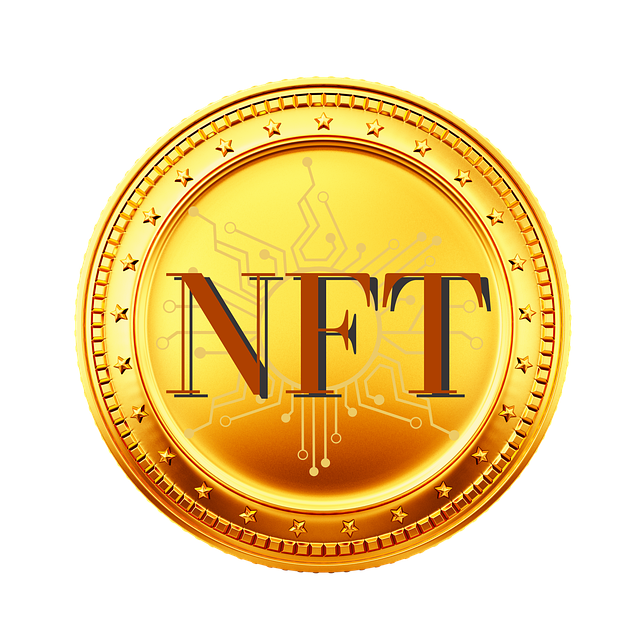Crypto Trading Rules in Japan: A Comprehensive Guide for Traders
Author: Jameson Richman Expert
Published On: 2025-08-12
Prepared by Jameson Richman and our team of experts with over a decade of experience in cryptocurrency and digital asset analysis. Learn more about us.
Engaging in cryptocurrency trading within Japan necessitates a thorough understanding of the country’s complex and continually evolving regulatory landscape. Japan has positioned itself as a global leader in crypto regulation, combining strict investor protection measures with innovative policies that aim to foster technological advancement. Whether you're a novice just entering the digital asset space or an experienced trader seeking to operate within legal boundaries, mastering Japan’s crypto rules is essential for legal compliance, security, and profitability. This comprehensive guide explores the core regulatory frameworks, licensing procedures, tax obligations, and best practices to navigate Japan’s sophisticated crypto environment effectively and confidently.

Introduction to Cryptocurrency Regulations in Japan
Japan’s pioneering approach to cryptocurrency regulation emerged prominently after the Mt. Gox incident in 2014, which exposed significant vulnerabilities within the industry and prompted swift regulatory reforms. Since then, Japan has established a comprehensive legal framework that recognizes cryptocurrencies primarily as property rather than legal tender, under the Payment Services Act (PSA) and the Financial Instruments and Exchange Act (FIEA). This classification influences how cryptocurrencies are handled in terms of trading, taxation, and consumer protections.
The Financial Services Agency (FSA), Japan’s chief financial regulator, oversees all crypto-related activities, ensuring compliance, market stability, and the protection of investors. The regulatory environment promotes a balance: encouraging blockchain innovation through efforts like regulatory sandboxes, grants, and experimental licenses, while enforcing strict standards to prevent money laundering, fraud, and cyberattacks. This balanced approach has helped Japan develop a mature, transparent, and trustworthy crypto ecosystem, attracting retail investors, institutional participants, and international collaborations alike.
Legal Framework and Licensing Requirements for Cryptocurrency Exchanges
At the core of Japan’s crypto regulation is the mandatory registration of cryptocurrency exchanges with the FSA. This licensing regime ensures that only compliant, secure, and transparent platforms operate legally within Japan, creating a safer environment for traders and consumers. The licensing process is rigorous and ongoing, involving multiple steps:
- Application Submission: Exchanges must submit comprehensive documentation detailing their corporate structure, ownership, operational procedures, security protocols, AML (Anti-Money Laundering), and KYC (Know Your Customer) policies. Transparency here is crucial for trust and regulatory approval.
- Security Standards and Infrastructure: The FSA mandates the adoption of advanced security measures such as multi-factor authentication (MFA), end-to-end encryption, cold wallet storage, regular vulnerability assessments, and intrusion detection systems. These standards are designed to prevent hacking incidents, which have historically plagued the industry.
- AML and KYC Compliance: To combat money laundering and terrorist financing, exchanges must implement rigorous client identity verification including biometric verification, proof of residence, and real-time transaction monitoring. Suspicious activities must be reported to authorities promptly.
- Financial Resilience and Capital Adequacy: Licensed exchanges are required to maintain sufficient capital reserves, insurance coverage, and liquidity buffers. These measures are vital for safeguarding customer assets, especially during market downturns or operational crises.
- Ongoing Reporting and Inspections: Regular reporting (monthly, quarterly, annual) and internal audits are obligatory. The FSA conducts periodic inspections to verify compliance and adapt standards as technology and threats evolve.
Notable compliant exchanges include BitFlyer, Coincheck, GMO Coin, and Rakuten Wallet. These platforms have demonstrated adherence to Japan’s high standards, and the FSA continues to refine licensing criteria to incorporate emergent areas like security tokens, DeFi, and stablecoins, reflecting a dynamic regulatory mindset.
Specific Crypto Trading Regulations in Japan
Beyond licensing, Japan enforces detailed rules governing the entire lifecycle of crypto assets and trading activities:
- Asset Registration and Public Registry: All cryptocurrencies traded or issued must be registered with the FSA. The regulator maintains an official, publicly accessible registry of approved tokens and registered exchanges, promoting transparency and enabling traders to verify legitimacy.
- Security Protocols: Platforms are mandated to employ multi-layered security architectures, including intrusion detection, regular penetration testing, and secure private keys management. Cold wallets are heavily emphasized to prevent hacks akin to the Mt. Gox incident.
- AML/KYC Enforcement: Robust verification processes are enforced, often including biometric data collection and proof of residence, aligning with international AML standards and facilitating cross-border cooperation.
- Segregation of Funds and Insurance: Customer assets must be held in segregated accounts separate from the exchange’s operational funds—mitigating risks of insolvency. Some platforms also carry insurance policies to cover losses from theft or cyberattacks.
- Market Conduct and Fair Trading: Insider trading, wash trading, and price manipulation are strictly prohibited. The FSA monitors trading patterns using sophisticated analytics and imposes hefty penalties on violations, ensuring a fair and transparent trading environment.
This comprehensive regulatory setup aligns Japan with international standards set by the FATF (Financial Action Task Force), facilitating cross-border cooperation and reducing systemic risks, thus fostering a trustworthy environment for domestic and foreign investors.

Taxation and Reporting of Cryptocurrency Gains
Japan’s tax regime for cryptocurrencies is among the most detailed worldwide, reflecting its emphasis on transparency and fiscal accountability. Gains from crypto activities are categorized as miscellaneous income and are taxed at progressive rates that can reach up to 55% when combined with local inhabitant taxes, depending on individual income levels.
Core aspects include:
- Taxable Events: Trading, mining, staking, hard forks, and airdrops are all considered taxable events. Gains are calculated as the difference between the acquisition cost and the disposal price, including transaction costs, exchange fees, and other relevant expenses.
- Accurate Record-Keeping: Traders must meticulously document every transaction—date, time, platform, transaction ID, amount, and fiat equivalents. Digital tools like crypto tax software (e.g., CoinTracking, Koinly) are widely used to streamline reporting.
- Valuation Methods: Consistent application of methods such as FIFO, LIFO, or average cost basis is mandatory for calculating gains or losses, ensuring uniformity across filings.
- Annual Filing Obligations: All crypto-related income must be reported in the annual tax return, typically filed by March 15th of the following year. Larger traders often employ certified tax accountants specializing in crypto taxation to optimize deductions and ensure compliance.
- Tax Planning Strategies: Strategic timing of transactions, loss harvesting, and utilizing deductions are critical, especially for high-volume traders. Proper planning can significantly reduce tax liabilities.
Non-compliance, whether accidental or deliberate, can lead to severe penalties—including fines, criminal charges, or asset confiscation. The Japanese National Tax Agency (NTA) has increased audits targeting high-net-worth individuals and institutional traders, emphasizing the importance of diligent record-keeping and compliance.
Risks and Challenges of Crypto Trading in Japan
While Japan’s regulatory environment fosters a safer trading atmosphere, traders must navigate several inherent and emerging risks:
- Market Volatility: Cryptocurrencies are inherently volatile; rapid price swings can lead to substantial gains or losses. Employing risk management tools like stop-loss orders, position sizing, and portfolio diversification is vital.
- Security Vulnerabilities: Despite strong regulations, hacking incidents still occur, especially on unregulated or poorly secured platforms. Traders must employ personal security best practices such as hardware wallets, two-factor authentication, and secure backups.
- Regulatory Changes: The fast-paced evolution of blockchain technology means new laws or amendments are frequent, potentially impacting trading strategies or platform operations. Staying informed through official channels and industry news is critical.
- Operational Risks: Platform insolvencies, fraud, or mismanagement pose threats to assets. Conducting thorough due diligence on exchange financial health, security records, and compliance history is essential before depositing funds.
- Operational Burdens and Compliance Costs: Ongoing regulatory requirements and reporting obligations can be resource-intensive, especially for small traders or startups. Investing in compliance infrastructure and legal advice is often necessary for sustainable operations.
Effective risk mitigation includes diversification, using reputable platforms, continuous education, and employing advanced security tools. Staying updated on legal and market developments can help traders adapt proactively.
Best Practices for Crypto Trading in Japan
Achieving success in Japan’s crypto scene requires disciplined adherence to best practices:
- Trade on Regulated Platforms: Use licensed exchanges certified by the FSA like BitFlyer, Coincheck, or Rakuten Wallet. These platforms undergo rigorous vetting, security audits, and legal oversight, reducing operational risks.
- Implement Robust Security Measures: Use hardware wallets, enable two-factor authentication, and avoid keeping large sums on exchanges. Regularly update security protocols and educate oneself on cybersecurity threats.
- Stay Informed and Engage with Industry Networks: Follow official FSA updates, industry webinars, and join crypto associations and forums to keep abreast of legal changes and market trends.
- Leverage Analytical and Automation Tools: Use technical analysis, trading bots, and market alerts carefully, ensuring these tools comply with local regulations and are employed within your risk appetite.
- Develop a Clear Risk Management Strategy: Set investment limits, diversify assets, employ protective orders, and avoid over-leveraging to withstand volatility.
- Partner with Licensed Advisors: Consult with licensed financial and tax professionals experienced with Japanese crypto law to craft compliant and optimized trading strategies.
Proactive engagement with the local industry, continuous education, and adherence to regulatory updates are crucial for long-term success and resilience in Japan’s dynamic crypto environment.

Conclusion: Navigating Japan’s Crypto Trading Landscape
Operating within Japan’s comprehensive crypto regulatory framework demands disciplined compliance, ongoing education, and strategic risk management. The FSA’s emphasis on investor protection, transparency, and cybersecurity has cultivated a resilient, trustworthy market environment that encourages sustainable growth and innovation.
Choosing regulated platforms, implementing robust security protocols, and staying informed about regulatory developments are fundamental steps to ensure legal operation and protect assets. As blockchain technology evolves with innovations like DeFi, stablecoins, and CBDCs, staying connected with official sources and industry networks will be vital for adapting strategies.
By adhering to Japan’s stringent rules and employing prudent practices, traders can harness the vast opportunities offered by Japan’s vibrant crypto ecosystem while minimizing vulnerabilities. A disciplined approach, combined with continuous education and strategic planning, will be key to thriving in this sophisticated regulatory environment.
For further insights, real-time updates, and expert analyses, resources such as [CryptoTradeSignals](https://cryptotradesignals.live/can-you-automate-crypto-trading-in-2025/318594), [XRP Price Forecasts](https://cryptotradesignals.live/xrp-price-predictions-2030-in-depth-analysis-and-future-outlook/318590), and professional trading guides are invaluable. Remember, compliance paired with strategic foresight forms the cornerstone of long-term success in Japan’s evolving crypto space.